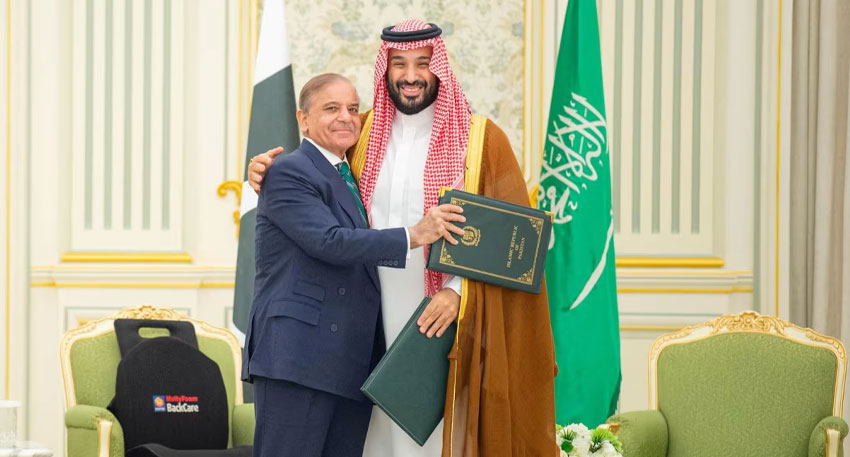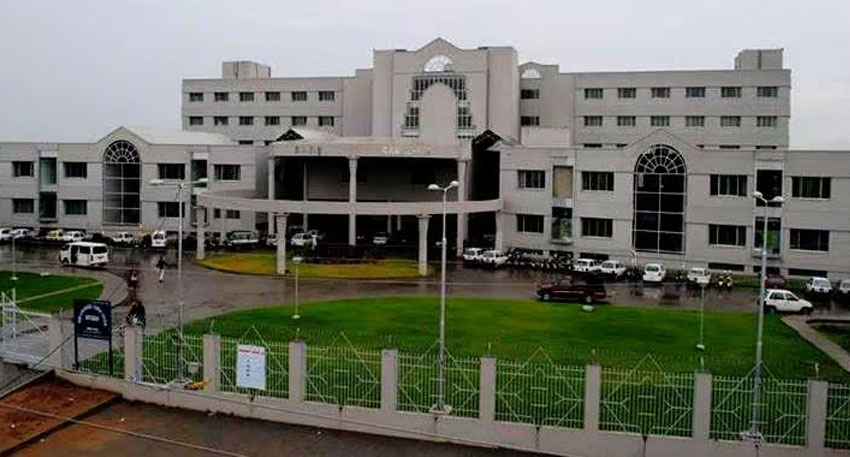
In a major strategic development, Saudi Arabia and nuclear-armed Pakistan signed a formal mutual defense agreement on Wednesday, solidifying a security partnership that has spanned decades. The agreement comes at a time of escalating instability in the Middle East and increasing unease among Gulf nations over the reliability of the United States as a security partner.
The move follows recent tensions triggered by Israel’s airstrikes on Qatar, which targeted Hamas political figures in Doha as they discussed a ceasefire plan brokered by Qatar. The attack has deepened anxiety among Arab states and further destabilized regional dynamics.
A senior Saudi official, speaking to Reuters, said the agreement is the result of years of strategic dialogue between Riyadh and Islamabad. “This is the formalization of a long-standing and deep-rooted partnership. It is not directed at any specific country or event,” the official noted when asked about its timing. This agreement is a culmination of years of discussions. This is not a response to specific countries or specific events but an institutionalisation of longstanding and deep cooperation between our two countries,” a senior Saudi official told the Reuters news agency when asked about its timing.
The Gaza conflict has already shaken the region’s balance, and Qatar has come under attack twice within a year — once by Iran, and more recently by Israel — further intensifying the security concerns of Gulf nations.
The defense pact could have far-reaching implications, especially considering Pakistan s recent border conflict with India in May. Responding to the development, India s Ministry of External Affairs said it was monitoring the situation and would assess its potential impact on national and regional security.
While acknowledging India s growing ties with Saudi Arabia, the Saudi official emphasized that relations with New Delhi remain strong. “Our ties with India are deeper than ever. We aim to expand them and continue supporting regional peace,” the official said.
Asked whether the agreement includes a nuclear security guarantee, the official described it as a comprehensive defense pact, covering all military dimensions.
Footage aired by Pakistan’s state broadcaster showed Prime Minister Shehbaz Sharif and Saudi Crown Prince Mohammed bin Salman warmly embracing after the signing ceremony. Also present was Pakistan’s Army Chief, Field Marshal Asim Munir, widely considered the most influential figure in the country.
A statement from the Prime Minister’s Office in Islamabad described the pact as a symbol of both nations’ shared vision for mutual security and regional stability. The agreement emphasizes that any external aggression against either nation will be treated as an attack on both, and commits both sides to enhanced military cooperation and joint deterrence capabilities.
Future Endeavors :
The Saudi-Pakistan mutual defense pact sets the stage for a range of strategic developments in the near future. One of the most immediate outcomes could be increased military cooperation between the two countries, including joint training, intelligence sharing, and coordinated security operations. This formal alliance might also lead to greater defense technology collaboration, where Pakistan could assist Saudi Arabia in developing or procuring military equipment, given its experience in arms manufacturing and operational capabilities.
There s also the potential for quiet discussions around nuclear security. While not officially stated, the nature of the agreement may imply a form of strategic deterrence, with Saudi Arabia relying, at least in perception, on Pakistan’s nuclear umbrella. Such an arrangement would reshape power dynamics in the Middle East and South Asia, drawing close attention from Iran, Israel, and Western powers.
The pact could also serve as a geopolitical counterbalance in South Asia. Pakistan may gain added strategic depth in its regional posture against India, while Saudi Arabia will need to carefully maintain its growing ties with New Delhi. This balance will be delicate, particularly if tensions escalate on either front.
Beyond defense, the agreement may deepen economic ties. Saudi Arabia could increase investment in Pakistan’s infrastructure, energy, and defense industries, possibly tying it more closely to larger initiatives like CPEC. Pakistan, in return, might benefit from long-term oil agreements, financial assistance, or inclusion in high-level Gulf regional projects.
This defense pact could also revitalize broader Islamic military cooperation, with Pakistan potentially taking a leading role in coalitions like the Islamic Military Counter Terrorism Coalition. However, such moves may be viewed with suspicion by countries like Iran, which could strain diplomatic relations.
At the global level, the agreement reflects a shifting security architecture where regional powers are seeking new alignments amid doubts about U.S. reliability. The Saudi-Pakistan pact might encourage other regional players to pursue similar agreements, possibly accelerating a new era of defense partnerships outside traditional Western frameworks.
Also Read: Pakistan-Saudi alliance deepens amid Israel’s aggression - What did they decide?
Still, this alliance comes with challenges. Balancing conflicting regional relationships and managing external perceptions will be crucial if this defense partnership is to serve as a tool for long-term stability rather than increased polarization.




